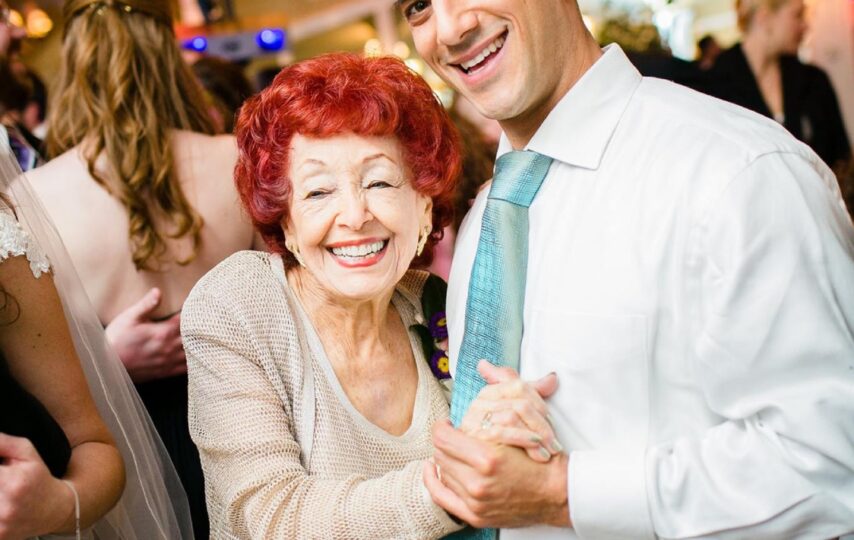Until scientists discover the proverbial fountain of youth, aging is an inexorable reality that all people need to face. In the US, the birth rate is historically low, but life expectancy is on the rise. That means the number of elderly in the country is steadily growing and will form a sizable portion of the entire population.
According to one study in the National Library of Medicine, in 1950, people who were 65 years or older formed 8% of the population. It also states that the elderly population is expected to increase to 22% by 2050. As the population in the US ages, it will have a major impact not just on the country but also on communities and older people.
Aging is a complex process. People experience several psychological and physical changes. At the same time, aging is affected by biological, environmental and social changes. Without a doubt, as the population ages and nearly all baby boomers reach 65 years or older, the focus will be on ensuring their healthcare needs are met and that Social Security benefits reach those who need them the most.
If you are already a licensed APRN, now is a good time to consider continuing your education to care for the elderly population as there will be many job opportunities in this field in the coming years. The most practical option for many nurses is to pursue a degree online, like Baylor University’s Doctor of Nursing Practice Adult-Gerontology Acute Care Nurse practitioner. This online program is open to BSN and MSN degree holders and helps students understand and learn the unique care needs of older adults, especially those with complex and chronic ailments.
Being an adult gero acute care NP will enable you to improve patient outcomes, provide critical and acute care, and focus on disease prevention. Before you enroll in an online program like the one offered by Baylor University, it is useful to understand the sociological process of aging and how different social factors have an impact on the aging process that people experience.
The social construction of aging
The social construction of aging refers to how society shapes our understanding of what it means to be old. Different cultures have different ideas about aging, and these ideas can influence how people perceive and experience aging.
In the US, aging is often associated with decline and loss. Older people are often viewed as being less productive, less attractive, and less valuable than younger people. This negative view of aging can have a profound impact on the way that older people are treated and can result in discrimination.
The life course perspective
This viewpoint emphasizes the importance of looking at aging as a process that unfolds over time. It recognizes that aging is not a single event. Instead, it is a series of events that occur throughout a person’s lifetime.
It stresses the importance of understanding the various transitions that people go through as they age. These can include factors such as retirement, widowhood and declining health. By understanding these phases, you can better understand how people experience aging and how society can support older people through the different stages of their lives.
Social support networks
Social support networks are the people and resources that individuals rely on for emotional, practical and financial support. As people age, their social support networks can change, and this can have a profound impact on their well-being.
As people retire, they may lose the social support networks that they had through work. This can lead to feelings of isolation and loneliness. Similarly, as people age and become less mobile, they may have difficulty accessing the social support networks that they need. People who belong to marginalized groups may also have reduced access to social support networks. This, in turn, can contribute to health disparities and other negative outcomes.
Age stratification
Age stratification refers to how society is structured by age and how this structure influences the way a person experiences aging. This can be seen in things like age-based retirement policies, age-based social programs and age-based social norms.
These structures can have a positive or negative effect on a person’s experience of aging. For example, age-based social programs like Social Security can provide important financial support to older people. On the other hand, age-based retirement policies can lead to discrimination by assuming that older people are less productive and valuable than younger people.
Intergenerational relations
The relationships between generations can have a profound impact on the experiences of aging. Intergenerational relations can be positive or negative and can affect factors such as health outcomes and social support networks.
Positive intergenerational relations can provide emotional support and a sense of connection, while negative intergenerational relations can contribute to stress and isolation. When adult children spend time with older adults and understand their emotional and physical needs, it can bridge the generation gap and lead to more harmonious intergenerational relationships.
Age identity
This refers to how people understand themselves in relation to their age. Age identity can be influenced by factors such as gender, race, and socioeconomic status. Some people may feel that they are “too old” or “too young” to participate in certain activities or to hold certain jobs, or they may fight the signs of aging because they are ashamed. This can lead them to take extreme measures in the hope of regaining their youthful appearance. Age identity can often lead to self-discrimination and prevent an older adult from participating in family get-togethers and other social activities.
Healthcare systems
Healthcare systems can play a critical role in shaping the experiences of aging. Access to quality healthcare can help prevent and manage chronic conditions and improve overall well-being. However, healthcare systems can also be discriminatory. In certain cases, the healthcare needs of younger patients are prioritized as healthcare providers may feel that older patients are less deserving of care since they cannot make meaningful contributions to society.
Economic status
Economic status can have a significant impact on the experiences of aging. Older adults who are economically disadvantaged may face challenges accessing healthcare, nutritious food and safe housing. They may also be more likely to experience social isolation and feelings of loneliness.
Economic status can also influence retirement decisions. People from lower socioeconomic backgrounds have less financial security and are more likely to continue working in old age. According to the Bureau of Labor Statistics (BLS), by 2030, the number of older adults aged 75 years and above in the labor force will increase by 96.5%.
The bottom line
These are just a few sociological processes that influence aging. By understanding these processes, society can work to create a more just and equitable environment for people of all ages. As an adult-gerontology acute care nurse practitioner, you will be able to identify different sociological influences that affect the realities of aging and how they impact an older adult’s physical, mental, and emotional health and well-being. That way, their healthcare concerns will not be trivialized and labeled as psychosomatic.



